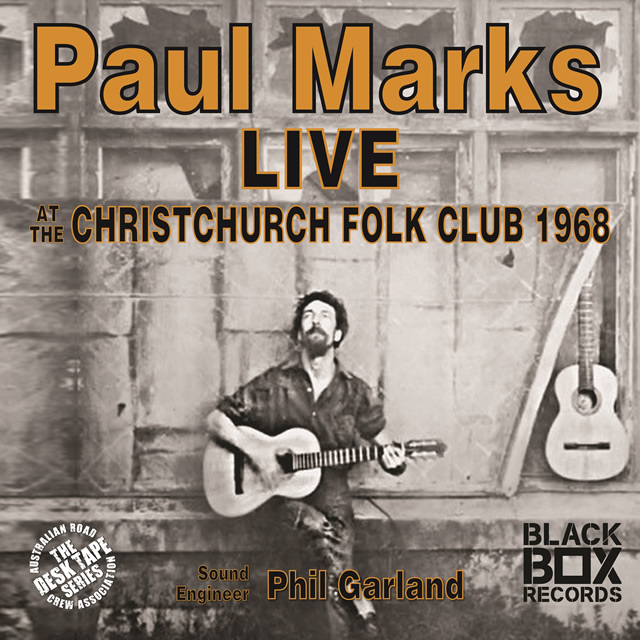
TRACKS
| 1 | Lord Randall |
| 2 | Easy Rider Blues |
| 3 | Larry’s Black Goat |
| 4 | Frankie and Johnny (Prelude) |
| 5 | Frankie and Johnny |
| 6 | Poor Kid Has Lost Her Key (Prelude) |
| 7 | Poor Kid Has Lost Her Key |
| 8 | Unaccompanied Blues |
| 9 | What Jealous Love Can Do |
| 10 | Nobody Knows You When Your Down And Out |
| 11 | If I Had Wings |
| 12 | To Do Me On A Day |
| 13 | The Friar And The Well |
| 14 | Green Brooms |
| 15 | Sammy Hall (Prelude) |
| 16 | Sammy Hall |
| 17 | The Bonny Boy |
| 18 | Make Me A Pallet On The Floor |
| 19 | I Will Give My Love An Apple |
| 20 | Wade In The Water Children |
| 21 | The Poor Young Man |
| 22 | Row Bullies Row |
| 23 | Ranzo |
| 24 | Little Sally Racket |
| 25 | Botany Bay |
| 26 | Goin’ Where Them Chilly Winds Don’t Blow |
ARTISTS
| Paul Marks |
THE RECORDING
Paul Marks
Live at the Christchurch Folk Club 1968
All the ARCA Desk Tape Series recordings are available through Black Box Records – australianroadcrew.com.au
Mastering:
Phil Dracoulis
THE CREW
| Phil Garland (R.I.P) | – | Sound Engineer |
WHO WE ARE
The Australian Road Crew Association Limited (ACN 684 129 468) (ARCA) is a non-profit company limited-by-guarantee dedicated to helping Road Crew Past and Present.
Road Crew are the collective backbone of the Australian music industry. Road Crew have technical ability that are unique and wide ranging. Without dedicated Road Crew there would be no Live Production.


